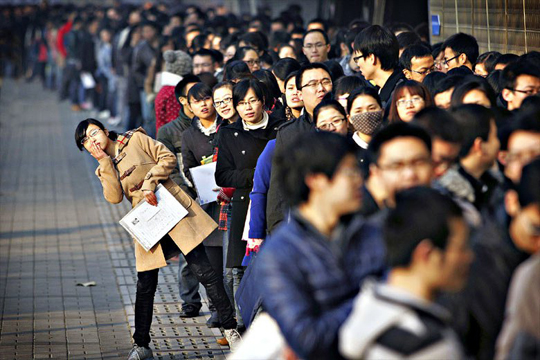Beijing, Sep 26: As China's telecom firm Huawei starts manufacturing in India, official media here has raised the red flag, warning that Beijing needs to worry about job cuts due to shifting of production bases as economic rivalry increases between India and the world's second largest economy.

"China needs to worry about effect of industrial transfer to India on production chain," an article in the state-run Global Times said today.
"As Chinese manufacturers show an increasing interest in setting up assembly lines in India, the economic competition between the two countries is likely to enter a new stage as India and China vie to expand their industry chains," it said.
Huawei "joining a wave of smartphone vendors establishing production facilities in the promising mobile market" would result in job cuts if mobile manufacturing shifted to India.
"In recent years, countless Chinese companies have been included into the production chain for smartphone vendors. It is difficult to accurately determine how many Chinese workers are involved in the production chain, but what is clear is that all those workers face potential job cuts if smartphone vendors transfer the whole industrial chain of mobile production from China to India," it said.
"Frankly speaking, China can't afford that. The country has to ensure its competitiveness in production chains at a time when India is becoming a new processing base for manufacturers. This will require Chinese local suppliers to maintain technological advantage through continuous innovation," it said.
Another article in the same daily said as Chinese investments are on the raise, China's firms must understand Indian company and labours laws before investing.
"India's relatively stable political environment, sustained economic growth momentum, huge population dividend and cheap labour costs have attracted numerous international investors," it said.
Referring to survey by 2014 Japan Bank for International Cooperation (JBIC) which ranked India to be the most preferred destination for future investment, it said China's direct investment to India soared last year to USD 870 million, six times than in 2014.
"However, India was not among the 13 countries which received direct investment from China exceeding one billion in 2015 and China's investment in India only accounted for 2.2 per cent of the total USD 39.3 billion foreign direct investment received by India in 2015," it said.
"With increasingly more Chinese firms and investors casting their eyes to India, it is urgent to rationally assess the political and economic risks of investing in India," it added.





Comments
Add new comment